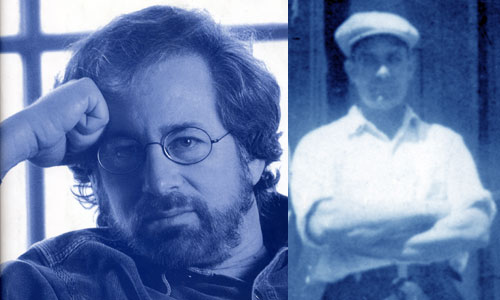Biomythology
Friday, July 7, 2006
posted by Leo Grin
 Print This Post
Print This Post

For decades, Howard studies has been riddled with debates about the limits of biography — the ability of modern readers to separate truth from fiction. People say that Howard made up his own reality. He told tall tales, invented incidents to suit his arguments, and believed that he lived in a world of violence and enemies that didn’t exist. Or that maybe existed. Partially. Perhaps.
In tandem with those thoughts is a sense of frustration at the way biographical myths about Howard — things we conclusively know to be untrue — continue to be perpetrated by journalists, columnists, and other assorted commentators. When engaged in the seemingly neverending battle to bring REH a measure of respect and justice, it’s easy to believe that Howard’s is a special case, a particularly virulent strain of the journalistic world’s ability to fudge every fact and jump at every good story regardless of merit or accuracy.
The Cimmerian recently had a good example of this in Rusty Burke’s article “The Note” (V3n1) which postulated that one of the most well-known facts about Howard, his suicide note, may not have existed at all. Just think if we somehow were able to conclusively prove that this was the case. Think of all the misinformation sitting out there, printed and read over the years, and how impossible it would be to rein it all in. As it stands we have enough trouble fighting the common myth of Howard as an insane Oedipal bipolar whack-a-doo.
But you know something? The more I read into the lives of others, especially artists and celebrities, the more I become comfortable with the state of Howard’s reputation, falsities and all. Not that I don’t care for the truth to become the “common knowledge” about Howard, just that I’m willing to let the transformation happen at its own pace. Howard is not unique in the level of mystery surrounding his life, nor in the inability of his biographers to make final determinations about various events, anecdotes, and historical facts.
Take a popular example from modern times: Steven Spielberg. One of the most rich, powerful, lauded, and well-known personages in the world, you would think that someone of his stature and level of interest — someone still alive and with the world realizing the worth of his output — would be safely under the proverbial microscope. All the stories verified, all the people around him interviewed, and every last scrap of data checked for accuracy. You would think that journalists could and would get all the facts straight regarding his life and work, and that — unlike with Howard — doing so would be a breeze.
Think again.
Despite all of the interviews, biographies, fans, and interest, Spielberg’s life remains a frustrating battle against creeping biomyths. The man who can legitimately lay claim to having written the most accurate biography on Spielberg so far, Joseph McBride (who also wrote arguably the best volumes on John Ford and Frank Capra) states on the dustjacket flap of his book that “much about Steven Spielberg’s personality and the forces that shaped it remain enigmatic, in large part because of his tendency to obscure and mythologize his own past.”
Sound familiar?
For instance, set against minor debates about such things as the Howard birth certificate (which says January 24 rather than 22, and which spells his middle name wrong) we have Spielberg for years claiming that he was a year younger than he actually was, complete with conspiracy theories as to why. McBride writes
Spielberg’s incorrect age and birthdate have been given in innumerable articles and several books, although all that was necessary to resolve the question was a request to the Cincinnati Board of Health for his Ohio Department of Health birth certificate.
McBride goes on to meticulously document all of the twists and turns of Spielberg’s various age claims over the years, entering a dizzying labyrinth Howard scholars can only shiver at. And that’s just the first of many myths about the director, most perpetrated by himself. Did Spielberg, for example, ever sneak onto the Universal lot in the legendary way he described many times over the years? Did he actually/possibly/maybe direct Poltergeist under the nose of billed director Tobe Hooper? We’ll probably never know for sure. The web of myth is too dense, with lots of broken strands and false leads. In many ways Spielberg is as much of an enigma as Howard.
And yet the biographies of Spielberg keep coming, and the attempts to analyze his work continue. As does the battle against wrong information. Cruise over to the Spielberg Films fansite forums, and you will see the same frustration REH fans have experienced over the years, covering everything from whether Raiders of the Lost Ark technically came in under or over budget, to the color of Spielberg’s pubic hair!
At times, Howard fans think that if Howard was more popular and secure in his reputation, we wouldn’t feel the need to be so defensive about factual errors promulgated in magazines or on websites. But if Spielberg’s fans are just as defensive about their man — a man who has seemingly won every accolade someone in his profession could hope for — then it’s pretty clear that such feelings come with the territory regardless of how famous the subject is. Perhaps Howard fans aren’t any more tender-skinned than aficionados of any other stripe.
So the next time you find yourself banging your head against the wall trying to correct misconceptions about REH, asking yourself why Howard fans are cursed with such thorny issues and vast information gaps, remember that when it comes to sifting through biomythology, and just like Spielberg’s Close Encounters protagonists, “We Are Not Alone.”
